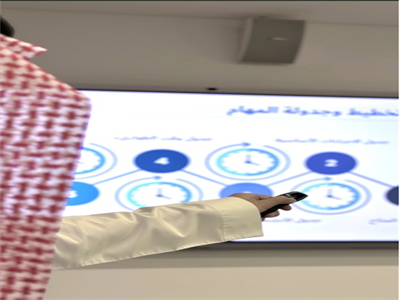Program Brief
The ability to self-knowledge, set priorities, and effectively manage your goals is vital in both personal and work life. This training program is designed to enable participants to discover and understand themselves, direct their abilities, manage their feelings and behavior to achieve the desired goals, which leads to satisfaction and self-realization.
Sectors
Program Topic
- Personal Skills and Self-Development
Job Families
Program Goals
At the end of the training program, the participant should be able to:
- Self-discovery and self-knowledge by applying the life cycle in practice, discovering gaps and developing practical plans to address them.
- Building smart goals using the smart goals methodology to be clear, specific, realistic and verifiable.
- Priorities management by defining the priority matrix to increase productivity.
- Identifying the tools for developing personal capabilities to improve the mental self-image and manage personal capabilities and effectiveness.
- Recognize strategies for managing decisions and solving problems to deal efficiently with the challenges and problems that he may face.
Program Agenda
Module 1: Understanding and Self-Discovery
1 Self-concept model
2 Personality concept
3 Circle of life application
4 SWOT analysis of personality Strengths, Weaknesses, Opportunities and Threats
5 Smart goals and the way to build personal goals correctly and apply them
6 Small goals, big goals
7 Ways to advance in life
Module 2: Personal Effectiveness
1 Personality test
2 Improving the mental image
3 Personal development tools
4 Johari window
5 Stress concept
6 Stress management methods
7 Emotional intelligence concept
8 The Five Elements of Emotional Intelligence
Module 3: Methods of Applying Self-Management
1 Priority matrix
2 The ten elements in managing and investing time
3 Ways to solve problems and make personal decisions
4 Responsibility and personal and professional commitment
Program Requirements
Not Available
Program Path
Names of the training programs that are integrated (enriched) with the training program:
- Not Available
Names of the training programs that after the training program:
- Not Available
Program Method
- Other
- Lecture
- Brainstroming
- Exercises and assignments
Evaluation Method
- Pre Exam
- Post Exam
Training Type
- In Class Training
- Online Training





Add Comment